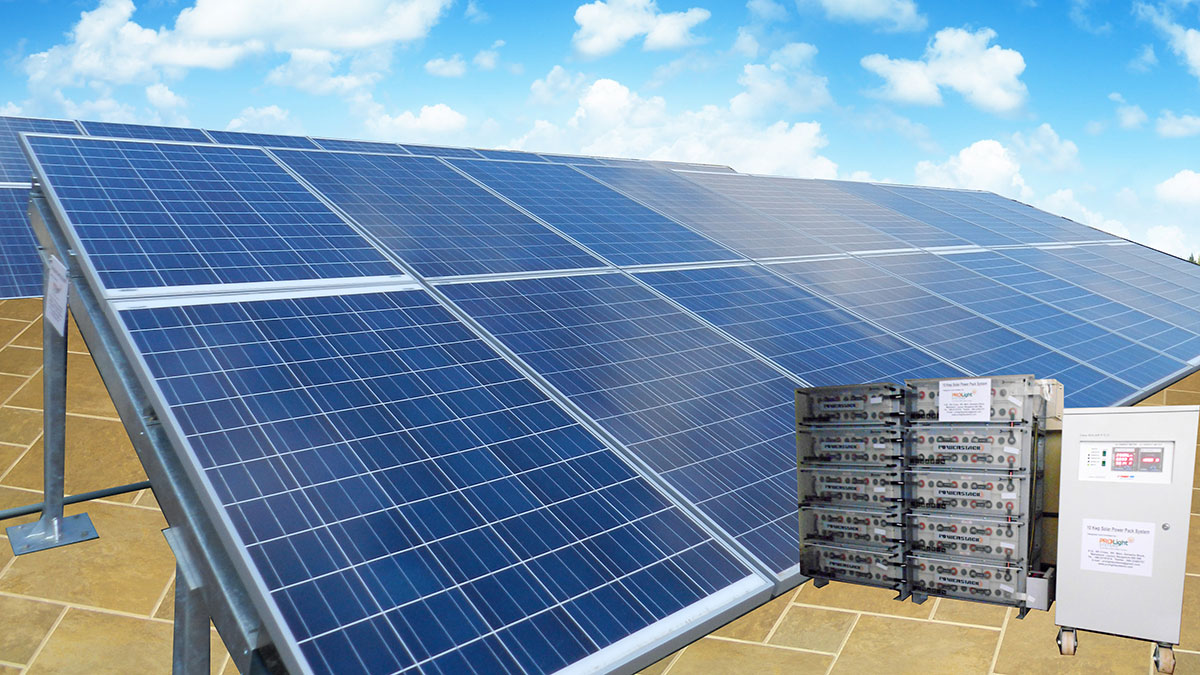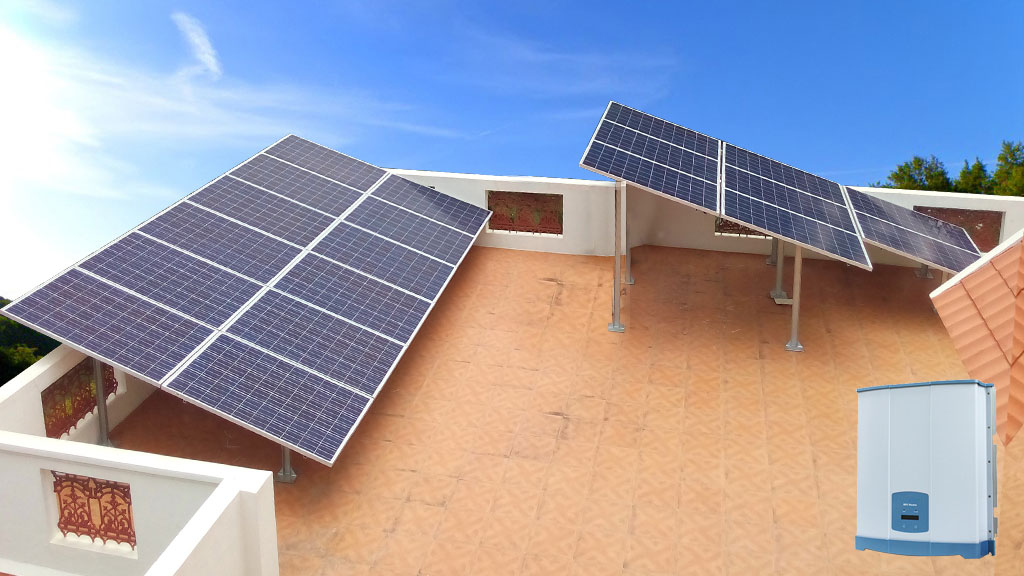Email : info@prolightsystems.in Toll Free No: 1800 425 4711 Download Brochure

Off-grid solar power also stores DC electricity in batteries. The addition of an inverter allows this system to convert DC electrical current coming from the batteries into AC or alternating current. AC is the standard form of electricity for anything that “plugs in” to utility power and is the appropriate current for common household appliances.

A Rooftop photovoltaic power station is a system which uses one or more photovoltaic panels, installed on rooftops of residential or commercial buildings, to convert sunlight into electricity. The various components in a rooftop photovoltaic power station include photovoltaic modules, mounting systems, cables, Solar inverters and other electrical accessories. A rooftop photovoltaic power station can be used in conjunction with other power sources like diesel generators etc., This system is capable of providing a continuous source of power. For organizations/commercial consumers planning to shift from conventional energy to solar power use, a rooftop solar photovoltaic (PV) power plant can not only be a money saver but also money spinner with excess power supplied to the utility grid.